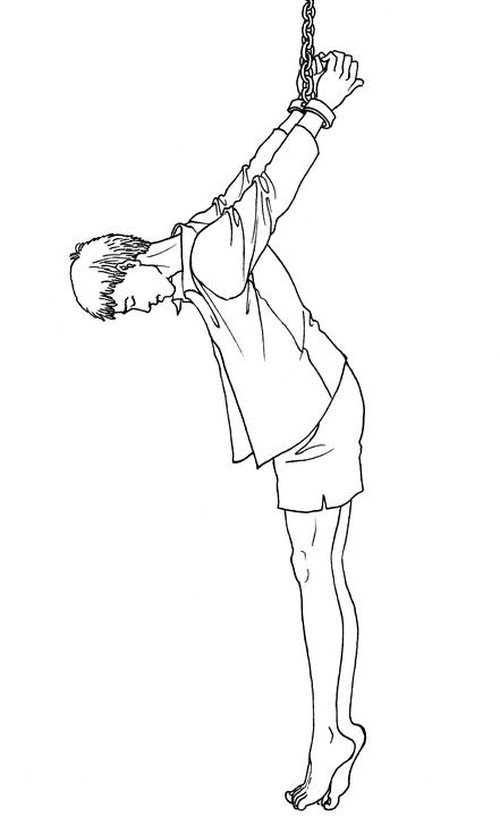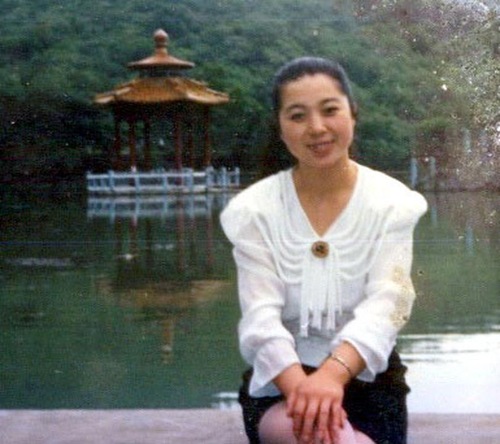(Minghui.org) The Laba Festival is a traditional Chinese celebration started hundreds of years ago on the eighth day of the La month, or the twelfth month on the Chinese lunar calendar. This year, the festival fell on January 24, 2018. There is a legend behind the Laba porridge consumed on this day.
The legend says that centuries ago, a princess had set her mind upon becoming a cultivator of Buddhism on the eighth day of the twelfth lunar month. No one in the palace could change her mind. Since the princess liked porridge, on the morning of her planned departure, her mother (the empress) personally cooked porridge for her with millet, beans, and dates. After eating her last breakfast in the palace, the princess set off.
Her mother thought her daughter would certainly come home after suffering for a few days, but a few years passed and the princess still hadn't returned. The emperor ordered the princess to return, but she refused. The emperor then ordered the temple's abbot to give the princess the hardest tasks. However, working hard didn't bother the princess at all.
One year the kingdom was gripped by drought. The emperor again ordered the abbot to give the hardest jobs to the princess. The abbot told the princess to water all the plants in the temple every day, and if she couldn't finish the job, she would have to go home. The princess got up early in the morning to get water from a river at the foot of a mountain. A couple of days later, the river ran dry. The abbot ordered her to get water from a river much farther away. If she couldn't do the job, she would have to go home.
The princess was determined to cultivate herself in the temple. She set up a straw shelter to beg heaven for rain and vowed that she would burn herself with the straw if it hadn't rained by noon. She started praying for rain in the morning, but it didn't rain by noon. She started the fire and sat still inside the shelter. At that moment, a cloud suddenly appeared above her head. It started to rain and put out the fire. The rain continued, and all the plants were watered by the rain.
The emperor and empress continued to order the princess to return to the palace, saying the empress missed her so much that she wouldn't eat and the emperor missed her so much that he wouldn't go to court. Upon receiving the imperial order, the princess cut off one of her hands to give to her mother and dug out one of her eyes to give to her father. When their daughter's hand and eye were delivered to them, the emperor and empress cried, though they were touched by the princess' strong determination to cultivate. The emperor prayed to heaven, “Please restore my daughter's hand and eye!” The heavens were also touched and restored the princess' hand and eye.
There is a group of marvelous women today like the princess. They are practitioners of Falun Gong (also called Falun Dafa), who have endured unprecedented suffering at the hands of the Chinese Communist Party (CCP) but have remained steadfast in their cultivation. Despite the brutal persecution, these practitioners have shown great tenacity and remain firm in their faith. Their stories illustrate how cultivators can transcend life and death, let go of attachments, and bravely walk their path to return to their true origin.
Chen Hongping and Chen Shulan
Two sisters, Chen Hongping and Chen Shulan, are Falun Gong practitioners in China's Hebei Province. They were talking to people about the persecution of Falun Gong when they were arrested and taken to the Donghuayuan Police Station in Huailai County on June 9, 2001. They were handcuffed to a “tiger bench,” and police interrogated them in the afternoon. At around 6 p.m., Hongping pulled her hands out of the handcuffs, threw them away, and ran. Nine officers went after her, caught her, and cuffed her hands behind her back. They then tied her arms with a rope and hung her from the door frame. They shook her handcuffs repeatedly and then beat her until her legs were broken.
Hongping shouted, "Falun Dafa is good! Falun Dafa is the righteous Fa!" She lost consciousness from the torture while she was still suspended from the door frame.
The two sisters were taken to the Huailai Detention Center at 11 p.m. Hongping's hands were swollen, and her body was covered in wounds. Some of her hair had been pulled out, exposing bare scalp. She vomited blood.
 Torture method: Hanging up by handcuffs
Torture method: Hanging up by handcuffs
Hongping was sent to Gaoyang Forced Labor Camp in Hebei Province on the morning of June 11, while Shulan was on the brink of death from the abuse she had suffered. The detention center told Changping Police Station to pick Shulan up, but the police refused because they saw her weak condition. The detention center released her to avoid taking responsibility. Shulan walked out of the detention center with wobbly steps.
Hongping was threatened and brutally beaten at the labor camp. Dozens of people took turns trying to brainwash her to make her renounce her faith. For one and a half years, she suffered in the labor camp. Her weight dropped from 55 kg (121 lbs) to around 25 kg (55 lbs). She was skin and bones and on the brink of death. Gaoyang Labor Camp officials sent her to a hospital on January 29, 2003, but the hospital refused to take her because they didn't want her to die there. Fearing they would be held responsible for her death, the labor camp sent Hongping home overnight. They didn't even take the time to put her clothes on her before leaving the hospital.
Hongping had a persistent high fever that would not go away, and she kept coughing. Her eyes were dull and her heart weak. She was unable to eat. She died in her brother's arms at the age of 32 on March 5, 2003. Even with her last breaths, she repeatedly told her family members to persist in their faith.
Liu Xinying
Liu Xinying, a nurse and Falun Gong practitioner in Dalian, had been arrested four times before the death of her husband, Qu Hui, who also practiced Falun Gong. Before his death, he had been a tetraplegic confined to his bed for 13 years due to the torture he had suffered in a forced labor camp. He was in constant pain, and Xinying took care of him day and night until he passed away on February 9, 2014.
Within a month of her husband's death, Xinying was arrested from her home and detained at the Dalian Detention Center. She was eventually sentenced to five and a half years in prison. Her daughter, a minor, was left at home by herself.
 Liu Xinying, her husband Qu Hui, and their daughter
Liu Xinying, her husband Qu Hui, and their daughter
Liu Xinying's health deteriorated, and her blood pressure reached a dangerously high 220/120. Her father went to the prison on several occasions to request medical parole for her, but he was rejected each time.
While held in custody, Xinying wrote in a letter to her daughter, “You witnessed how much your father suffered after he was disabled by torture. You were young and had many questions. You once asked me, 'Other kids' daddies can stand. Why does my daddy have to stay in bed?' Your question made me determined to obtain justice for your dad because I don't want to see your innocent mind being shadowed by the darkness of our society...
“On your 17th birthday, I wish that your life will be filled with happiness and sunshine. I wish you safety during the time I'm away. I wish the period of separation will end with both of us shining with a pure glow of being reborn like a phoenix rising from the fire.”
Countless families have been broken apart due to the persecution of Falun Gong. So many mothers and countless orphans spend their lives in tears. However, Xinying faced these tremendous tribulations with such marvelous tenacity and the noble realm of a Falun Dafa cultivator.
Ji Shujun
Ji Shujun is a Falun Gong practitioner and a former accountant of the Chengde City Tobacco Monopoly Bureau in Hebei Province. For doing the Falun Gong exercises on Tiananmen Square in Beijing in 2002, she was thrown into a forced labor camp for two and a half years. She was subjected to many cruel forms of torture.
Her family was broken apart by the persecution, and she was fired from her job. Nevertheless, she remained steadfast in her cultivation practice and worried about the safety of the people who had been deceived by the Communist Party. In the spring of 2006, she left her hometown and moved to a small town in a mountain area. Ever since then, she has walked all over the region of roughly 5,000 square kilometers to tell people the facts about Falun Gong.
Since the persecution started, Shujun has been arrested five times, sent to a labor camp three times, and imprisoned once. No inhumane treatment could shake her belief in Falun Dafa’s principles of Truthfulness-Compassion-Forbearance or hold her back from her mission. As soon as she was released from detention each time, she would continue to clarify the facts about Dafa to people on the street or in remote mountain villages.
Under the tyranny of the communist regime, Falun Gong practitioners have persisted in their cultivation. They have undergone tremendous tribulations and faced unprecedented pressure. How many people can understand the realm of these practitioners who have let go of life and death for the sake of others? Their stories will be spread through the ages, like the princess in the legend of Laba porridge.
Views expressed in this article represent the author's own opinions or understandings. All content published on this website are copyrighted by Minghui.org. Minghui will produce compilations of its online content regularly and on special occasions.
Category: Perspectives












